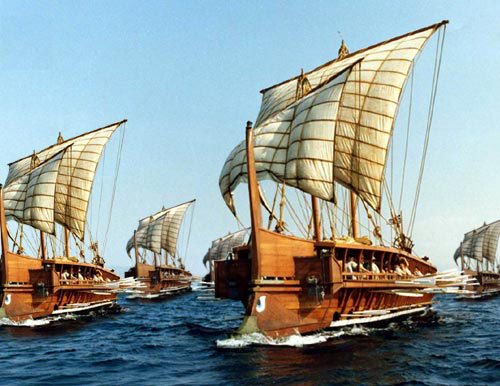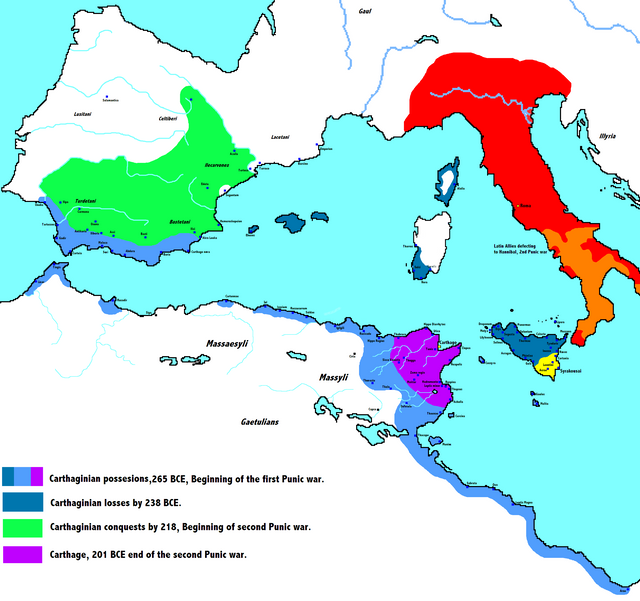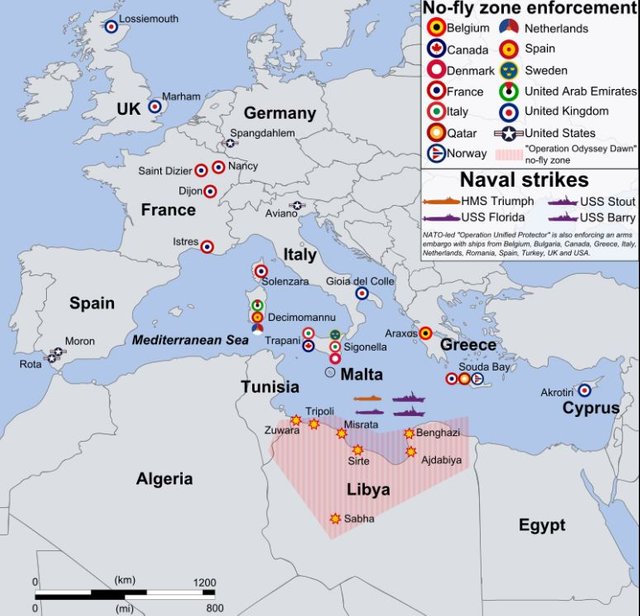
Before Rome, there was Carthage.
The ancient empire based in modern-day Tunisia went from Spain to Sicily and Libya. The first thing the Romans did was try to take it down. Carthaginian triremes were ruling the seas at a time when they themselves barely knew how to build a galley. What turned the tide was when a Carthaginian crew was so eager to pursue fleeing Romans on land that their ship got beached. While the legions were still relatively new, a handful of Carthaginian marines were no match for them. The ship was reverse-engineered, shortly thereafter the Roman fleet had quinqueremes - an upgraded version. This single intellectual property breach as we may call it now, brought doom to the entire Carthaginian empire.
Roman legions could finally land on the southern shore and tried get rid of Carthage. They would have done so if it were not for Xanthippus of Lacedaemon who was passing by, a product of the Spartan education system, who in essence managed to defend the town and gave them a show to remember with the elephants. So the Romans couldn't finish the job and, surprise, it bit them in the rear a while later when the Hannibal kid crossed over the Alps with more elephants to make his statement. It was long, it was bloody, but when Rome finally managed to prevail over Carthage, the shore facing theirs was no longer a threat. Roman traders could do business without harm. Their settlers could expand the land they occupied. They could become what we remember them for.
Similar cases occurred through history: Macedonians with Egypt, Portugal & Spain and the Moors, the French and North-West Africa. The country that took over the place ended up changing the course of history shortly thereafter. The last episode in the series was Libya. The local ruler, the Colonel, decided (perhaps not by himself) to make an Africa-wide new currency backed by his own gold. Didn't go quiet well, the French saw it as an attempt to divert African monetary reserves away from their vaults (see CFA franc). The problem is: Libya is facing Sicily, which is facing... oh right. Italy. And Rome. Ah.
Credits for this map: https://en.wikipedia.org/wiki/User:Jolly_Janner
We now have a delicate situation in which the French used the opportunity to gain control over Libyan oil wells. Through the NATO puppet government, therefore controlling the north-west and the capital. Then there's the Italian-backed side controlling a majority of the eastern side and most of the crude output. While the Southern Mediterranean coast may not initially come to mind as a strategic position, it is currently responsible for the a significant political rift between France and Italy. A wedge reminiscent of the second not to mention the Gallic wars, making you wonder if the oil is actually worth scuttling the relationship between these two.


Have you heard about Partiko.App it's a mobile application for Steem. It's the fastest way to stay engaged with your followers - as you get real time notifications, earn Partiko points and grow your audience.
Posted using Partiko.App
Downvoting a post can decrease pending rewards and make it less visible. Common reasons:
Submit
Interesting read, it would be cool to see some maps to visualise the locations better :)
Downvoting a post can decrease pending rewards and make it less visible. Common reasons:
Submit
Maps added.
Downvoting a post can decrease pending rewards and make it less visible. Common reasons:
Submit